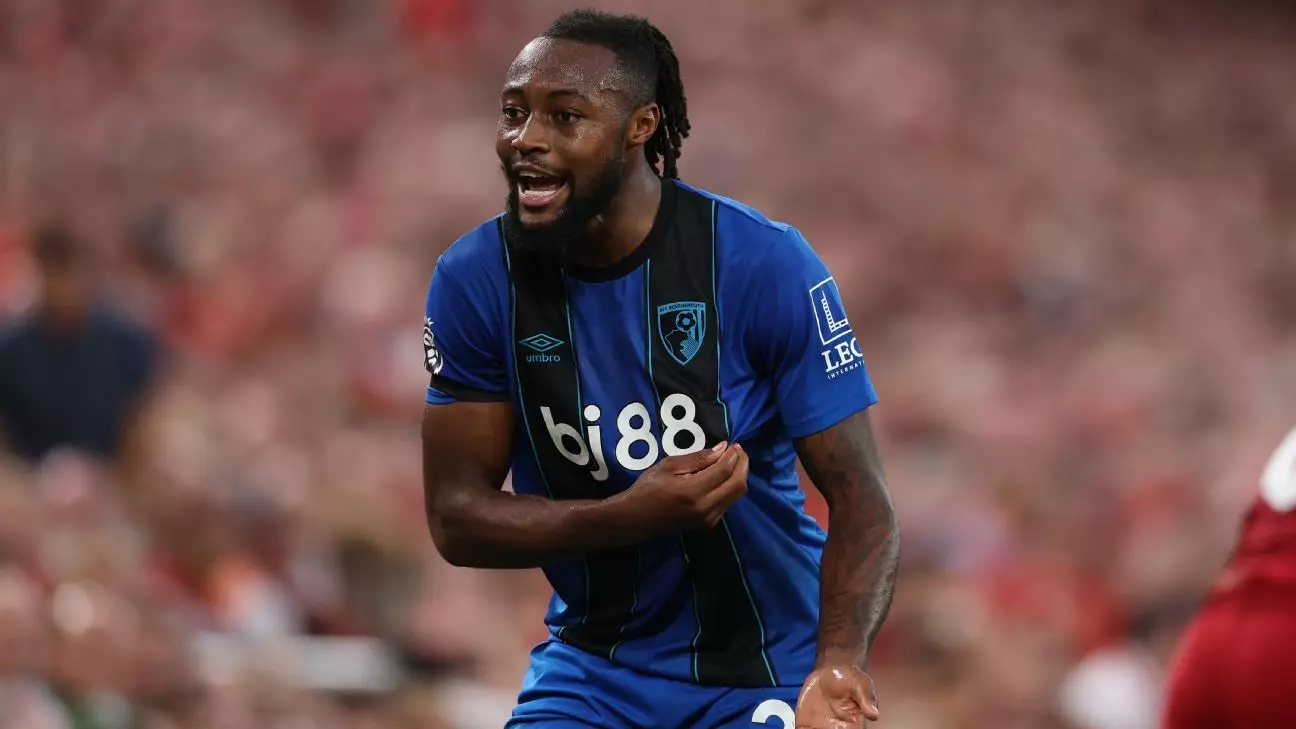Football has long been a sport that unites, inspires, and transcends cultural boundaries. Yet, beneath its glamorous surface lies an enduring reality: racism. Recent incidents, like the abhorrent abuse directed at Antoine Semenyo during the Bournemouth vs. Liverpool match, expose the persistent ugliness that still festers in football stadiums worldwide. While the game celebrates skill, teamwork, and passion, there remains a darker side that refuses to be eradicated through mere gestures or campaigns. This ongoing struggle reveals that superficial efforts—such as taking the knee—are insufficient, and the fight against racial prejudice requires more profound, systemic change.
The hit-and-miss nature of campaigns intended to combat racism demonstrates their limitations. For every step forward, setbacks like the Semenyo incident serve as harsh reminders of the work still needed. The stadium, a place of communal joy and collective pride, also acts as a microcosm of society’s broader issues. When a player is subjected to racial slurs during a match, it shakes the foundation of what football stands for. It also forces players, clubs, and fans to confront uncomfortable questions: How can such acts still occur? And what does this say about our societal values?
This incident at Anfield focuses attention on the importance of action over symbolism. While condemning racism outright is commendable, it is not enough. The fact that a man was arrested on suspicion of a racially aggravated offence shows law enforcement’s recognition of the gravity of such acts. Yet, arresting one individual cannot undo the damage or change the ingrained prejudices that allow such behaviour to persist. Football institutions and society at large must prioritize education, awareness, and cultural change, emphasizing that hatred has no place in sports or anywhere else.
Resilience and Solidarity: The Power of Community Support
Beyond the immediate response of law enforcement, what stood out was how the football family rallied around Semenyo. His heartfelt message of appreciation highlighted the unexpectedly powerful impact of collective support. In a world where hate often tries to dominate narratives, this unity in the face of bigotry showcases the core strength of football’s community spirit. Players, fans, and officials publicly sided with Semenyo, reaffirming that the sport can be a force for good when it chooses to stand against discrimination.
Semenyo’s reaction underscores an essential truth: resilience in the face of adversity is vital. His recognition that the support of teammates, fans, and the wider football world makes a difference reaffirms the role of communal bonds in confronting hate. His words serve as a reminder that even in moments of darkness, there is a collective light—one that emerges from solidarity, empathy, and shared values. This collective resilience provides hope that change is possible, though it remains an uphill battle.
Furthermore, Semenyo’s candid acknowledgment of the emotional toll such incidents exact reveals the human side of the ongoing struggle. Frontline players are often expected to respond with professionalism, but their personal well-being can be deeply affected. The football community must prioritize mental health support alongside disciplinary actions, fostering an environment where victims of abuse feel safe to speak out and receive compassionate aid.
The Role of Leadership and Education in Driving Lasting Change
The response from Liverpool captain Virgil van Dijk exemplifies how leadership plays a crucial part in shaping attitudes. His unwavering support for Semenyo and his sober commentary on the wider problem reflect a proactive stance that must become standard across clubs and leagues. Van Dijk’s assertion that education is the key to eradicating racism strikes a chord—words that carry weight coming from a respected leader within the sport.
However, leadership alone isn’t enough; it must be complemented by concrete policies and cultural shifts. Families, schools, and community organizations all have roles to play. Football’s influence is unparalleled—it can model acceptance and dispel ignorance through well-structured initiatives that promote diversity and inclusion from a young age. Campaigns like “Kick Racism Out of Football” need to evolve into ongoing, comprehensive education programs that address biases at their root.
The challenge lies in altering mindsets that have been woven into societal fabric over decades. In some cases, efforts are too focused on swift reactions—suspensions or arrests—without addressing the underlying prejudices that foster such behaviour. A holistic approach requires integrating anti-racism education into youth programs, emphasizing empathy, respect, and the universality of the human experience. This is not a matter of quick fixes but a long-term commitment to cultural transformation.
The Helmet and the Harsh Reality: Facing Up to Persistent Inequality
The incident at Anfield exemplifies the harsh reality that the fight against racism is far from over. Every act of bigotry is a stain on the sport’s reputation, threatening to undo years of progress. Yet, it also highlights the need for the sport to confront its failures head-on and to push for reforms that go beyond surface-level gestures. Sports organizations must be willing to scrutinize their own cultures and implement policies that foster genuine inclusion.
Moreover, engagement with fans and communities is crucial. Fans have immense influence—both positive and negative—on the environment within stadia. Clubs must foster culture shifts that encourage accountability, emphasizing that racist behaviour will not be tolerated under any circumstances. Education at all levels, from grassroots initiatives to professional leagues, must be prioritized as part of a comprehensive strategy to combat the deeply rooted issues of racial prejudice.
While the current climate demonstrates resilience, it also exposes vulnerabilities. The challenge is continuous: to ensure that the fight against racism is integrated into the fabric of football, making it impossible for hate to find fertile ground. Only then can the beautiful game truly reflect the inclusive spirit it aspires to represent—one where diversity is celebrated, and hate has no place.

